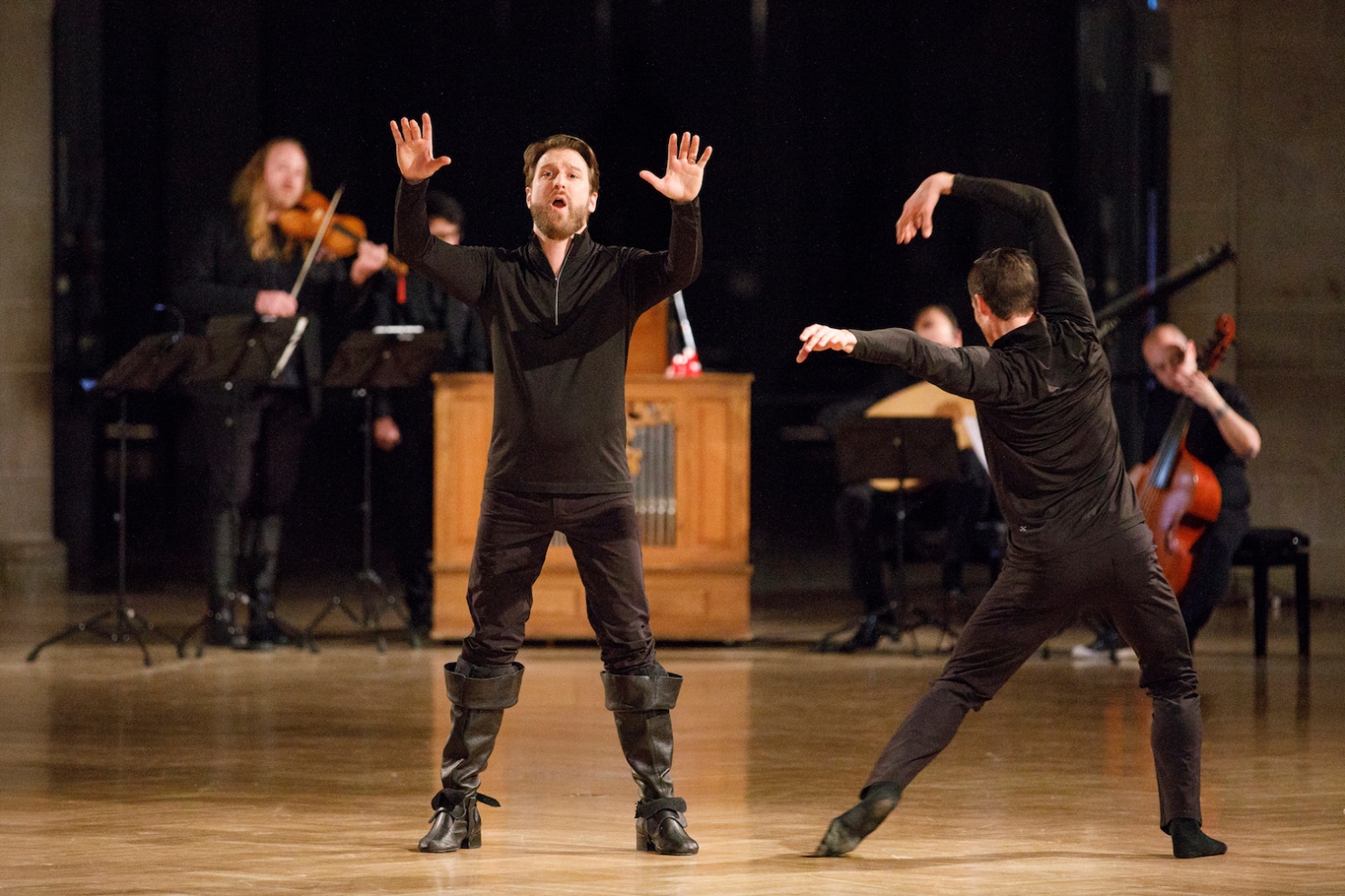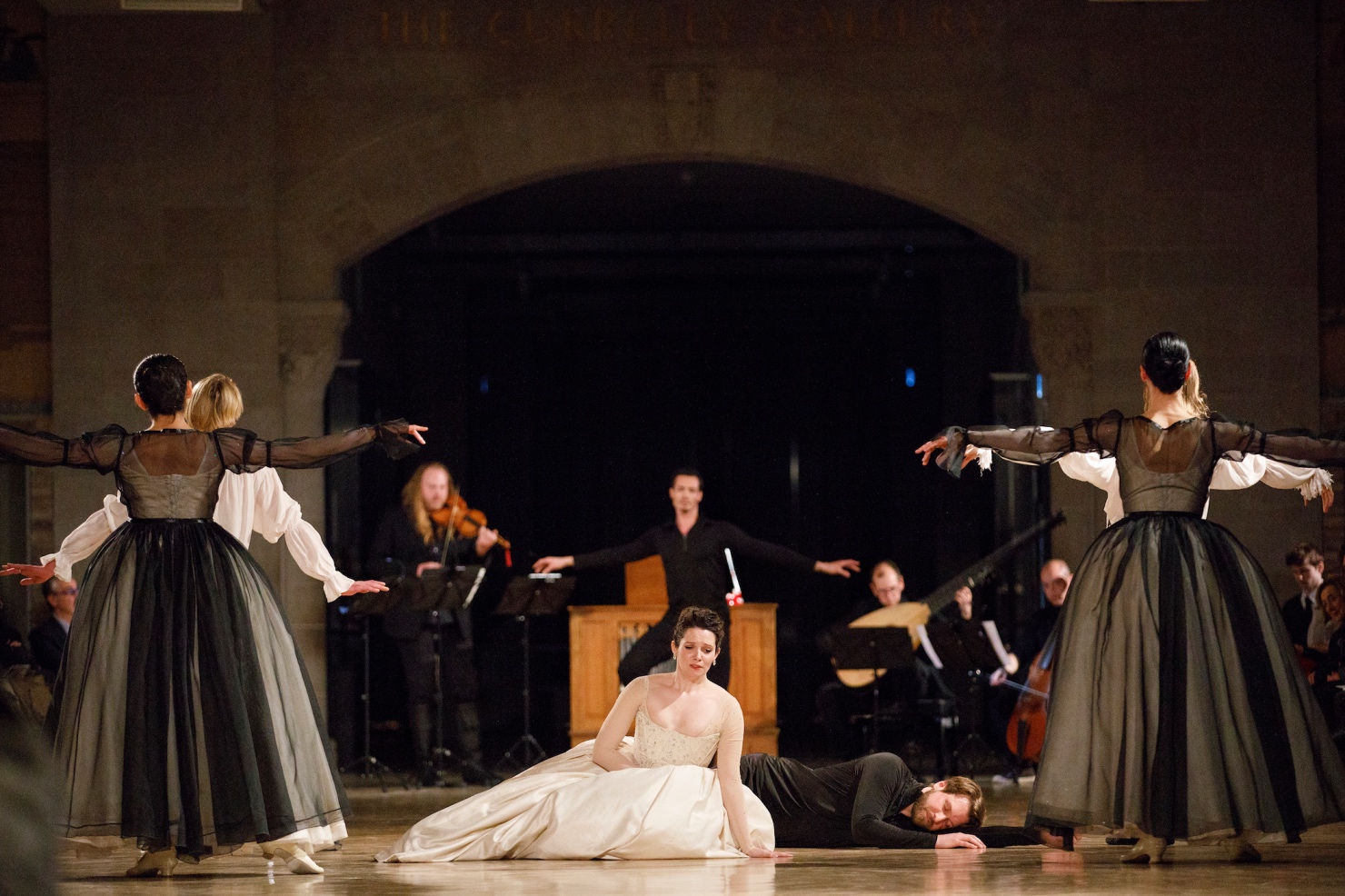
Baroque novelty from Opera Atelier: The Angel Speaks
ReviewOpera Atelier is gearing up for its April production of Mozart’s Idomeneo, and with its recent concert at the Royal Ontario Museum, creating an early draw for the eyes and ears.
Last year, they presented Harmonia Sacra, a concert displaying singers, baroque chamber orchestra, and Artists of the Atelier Ballet in the runway stage of the ROM’s Currelly Gallery. The concert included the world premiere of Inception, a new work for baroque violin and dancer by Edwin Huizinga and Tyler Gledhill, which marked OA’s very first new commission.
There was some déjà-vu this time around, as audiences seated themselves in the same Currelly Gallery, with the handful of Tafelmusik players on one end of the runway. This time titled The Angel Speaks, the programme of music by Purcell and William Boyce looked familiar, and I was pleased to see Inception included. (It’s worth noting that between these two ROM concerts, and its place in Atelier’s 2018 double-bill of Actéon and Pygmalion, I’ve now heard Inception three times within one year - not bad for a new Canadian commission.)

Also on the programme was the latest from Huizinga, Annunciation. It’s a piece inspired by Rilke’s poem Verkündigung, presented as a work-in-progress for two singers (the deft Jesse Blumberg and Mireille Asselin), contemporary and baroque dancers, and baroque ensemble. Opera Atelier Co-Artistic Director and stage director Marshall Pynkoski briefed us on the plans for Annunciation, teasing us with ideas of expanding it into a dramatic cantata, or even a one-act opera.

I found Annunciation to be less compelling than Huizinga’s Inception, but with exciting roots for the work’s future growth. Rilke’s mystic, imaginative text gets a “loose, expressionistic” treatment from Pynkoski. We watch as the angel Gabriel (Blumberg) sees the Virgin (Asselin), and experiences his “confusion, disorientation and gradual recognition of his mission”. It’s a story that’s imaginatively vague, and I thought it was brilliantly programmed to precede Purcell’s The Blessed Virgin’s Expostulation; the two pieces, both featuring Asselin in the same character, work symbiotically like prequel and sequel, source material and fan-fiction.
The item of interest for the night - I figure it’s meant to be Annunciation - wasn’t my personal highlight, but I thought the whole programme had grown more organic in its arc since last year’s presentation. The stylistic gap between baroque and contemporary music was bridged beautifully; Gledhill appeared as the contemporary dancer among the baroque dance that preceded Annunciation, and Huizinga’s distant violin strains - taken out of his Inception - acted as a wordless answer to Asselin’s cries of “Gabriel!” in her Blessed Virgin.
If anyone doubted the longevity of Opera Atelier’s plans to commission new works, they’ve been quick to prove themselves. It makes me more curious to hear their mainstage season, knowing that the company has more than one baroque trick up their sleeve.


Comments